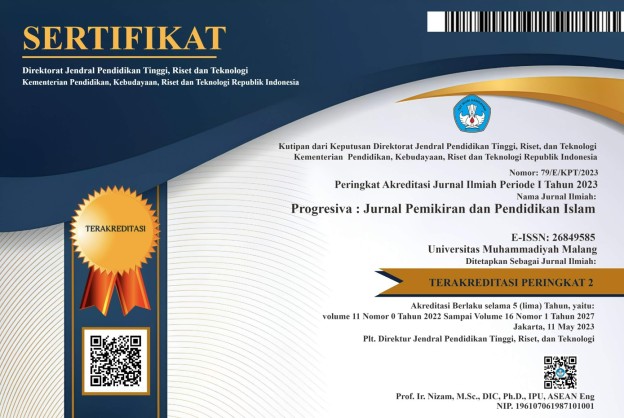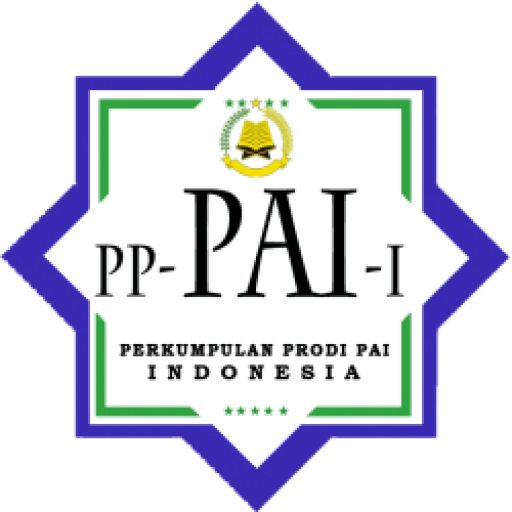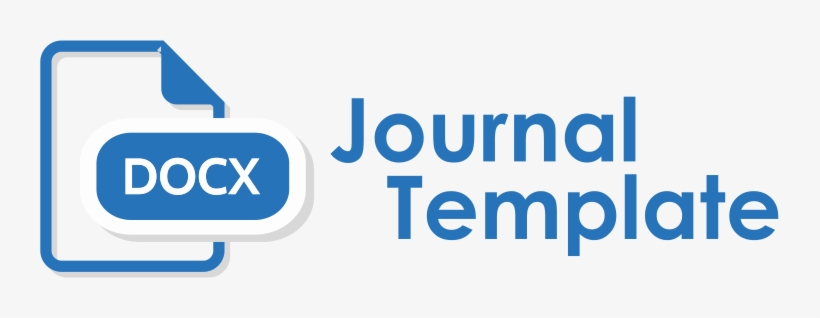Innovative Leadership Management: The Pattern of School Quality Development at SMP Muhammadiyah 2 Inovasi Malang
DOI:
https://doi.org/10.22219/progresiva.v11i01.20742Keywords:
Innovation , School Management , Principle, School Leadership, Teacher QualityAbstract
This study aimed to examine innovative school leadership management in order to improve school quality. Innovation strategies in the aspects of school leadership include the promotion of the work ethic of human resources, implementation of the curriculum, learning methods and media, and school facilities and infrastructure. This research was conducted by direct field observation at SMP Muhammadiyah 2 Inovasi, Malang, thus involving in depth interview and repeated observations. This research applied qualitative approach with descriptive analysis to describe the object of study comprehensively. The results showed that school management based on innovation as a strategy to improve school quality had proven successful. In the end, the school experienced an increase in the number of enrolled students, academic and non-academic achievements. Moreover, the number of graduates who continued to a higher level was doubled.
Downloads
References
Abdullah, M. (2019). School Culture to Serve Performance of Madrasah in Indonesia. QIJIS (Qudus International Journal of Islamic Studies), 7(1), 71. https://doi.org/10.21043/qijis.v7i1.4809
Ahmad, M., & Rochimah, H. (2021). Improving teaching effectiveness through transformational leadership and integrity. International Journal of Evaluation and Research in Education (IJERE), 10(4), 1316. https://doi.org/10.11591/ijere.v10i4.21801
Alammar, L. (2015). The effective school: The role of the leaders in school effectiveness. Educational Research and Reviews, 10(6), 695–721. https://doi.org/10.5897/err2014.1986
Alkouatli, C. (2018). Pedagogies in Becoming Muslim : Contemporary Insights from Islamic Traditions on Teaching , Learning , and Developing. Religions, 9(367). https://doi.org/10.3390/rel9110367
Aquino, C. J. C., Afalla, B. T., & Fabelico, F. L. (2021). Managing educational institutions: School heads’ leadership practices and teachers’ performance. International Journal of Evaluation and Research in Education (IJERE), 10(4), 1325. https://doi.org/10.11591/ijere.v10i4.21518
Arikunto, S. (2006). Metode Penelitian Kualitatif. Bumi Aksara.
Brooks, M. C., & Mutohar, A. (2018). Islamic school leadership : a conceptual framework Islamic school leadership : a conceptual framework. Journal of Educational Administration and History, 50(2), 54–68. https://doi.org/10.1080/00220620.2018.1426558
Dwiyogo, W. D. (2018). Developing a Blended Learning-Based Method for Problem-Solving in Capability Learning. TOJET: The Turkish Online Journal of Educational Technology, 17(1), 51–61.
Everard, K. B., Morris, G., & Wilson, I. (2004). Effective school management. In Effective School Management. https://doi.org/10.4135/9781446211427
Farah, A. I. (2013). School Management: Characteristics of Effective Principal. International Journal of Advancemnet in Research & Technology, 2(10), 168–173.
Felisardo, F., Llinàs-audet, X., & Améstica-rivas, L. (2019). Competencias en la formación del administrador : un reto a las instituciones de enseñanza superior en Brasil. Utopía y Praxis Latinoamericana, 24(4), 13–24.
Firmansyah, F., Prasojo, L. D., Jaedun, A., & Retnawati, H. (2022). Transformational leadership effect on teacher performance in Asia: A meta-analysis. Cypriot Journal of Educational Sciences, 17(6), 2143–2152. https://doi.org/10.18844/cjes.v17i6.7552
Ghavifekr, S., & Rosdy, W. A. W. (2015). Teaching and learning with technology: Effectiveness of ICT integration in schools. International Journal of Research in Education and Science (IJRES), 1(2), 175–191.
Gillies, R. M. (2016). Cooperative learning: Review of research and practice. Australian Journal of Teacher Education, 41(3), 39–54. https://doi.org/10.14221/ajte.2016v41n3.3
Gull, F., & Shehzad, S. (2015). Effects of Cooperative Learning on Students’ Academic Achievement. Journal of Education and Learning (EduLearn), 9(3), 246. https://doi.org/10.11591/edulearn.v9i3.2071
Guzman, C., & Jaillier-Castrillon, E. (2021). Educational innovation as one of the drivers of human evolution. Cypriot Journal of Educational Sciences, 16(5), 2651–2676. https://doi.org/10.18844/cjes.v16i5.6354
Hartinah, S., Suharso, P., Umam, R., Syazali, M., Lestari, B. D., Roslina, R., & Jermsittiparsert, K. (2020). Teacher’s performance management: The role of principal’s leadership, work environment and motivation in Tegal City, Indonesia. Management Science Letters, 9(14), 1–12. https://doi.org/10.5267/j.msl.2019.7.038
Hidayat, N., & Wulandari, F. (2020). THE IMPACT OF LEADERSHIP BEHAVIOR ON SCHOOL PERFORMANCE. Jurnal Cakrawala Pendidikan, 39(3), 493–506. https://doi.org/10.21831/cp.v39i3.31005
Huda, S., Muawanah, Munifah, Syazali, M., Palupi, E. K., Umam, R., & Tortop, H. S. (2020). Islamic education in supply chain system by prioritizing manners as a success factor of millennial generation on socializing. International Journal of Supply Chain Management, 9(2), 853–863.
Huda, S., Tsani, I., Syazali, M., Umam, R., & Jermsittiparsert, K. (2020). The management of educational system using three law Auguste Comte : A case of Islamic schools. Management Science Letters, 10(3). https://doi.org/10.5267/j.msl.2019.9.018
Janíková, M., & Kowaliková, P. (2017). Technical Education in the Context of the Fourth Industrial Revolution. Open Online Journal for Research and Education Special, 65–73.
Jayanti, K. D., & Senam. (2017). Studi Kinerja Guru Lulusan Program Studi Pendidikan Kimia Universitas Negeri Yogyakarta di Daerah Istimewa Yogyakarta. Jurnal Inovasi Pendidikan IPA, 3(1), 63–69.
Lafrarchi, N. (2020). Assessing Islamic Religious Education Curriculum in Flemish Public Secondary Schools. Religions, 11, 110.
Lestari, F., Buang, S., Muhammad, S., Antoni, S., Madiyo, M., Durrul, J., & Rofiqul, U. (2019). Cooperative Learning Application with the Method of Network Tree Concept Map: Based on Japanese Learning System Approach. Education Journal of Gifted Young Scientists, 7(1), 15–32. https://doi.org/https://doi.org/10.17478/jegys.471466
Maxwell, N. L., Mergendoller, J. R., & Bellisimo, Y. (2004). Developing a problem-based learning simulation: An economics unit on trade. Simulation and Gaming, 35(4), 488–498. https://doi.org/10.1177/1046878104264789
Msila, V. (2011). School management and the struggle for effective schools. Africa Education Review, 8(3), 434–449. https://doi.org/10.1080/18146627.2011.618650
Muhsin, M. A. Al, & Ahmad, N. (2019). The Emergence of Education 4.0 Trends in Teaching Arabic Islamic Finance Curriculum Design: A Case Study. International Journal of Psychosocial Rehabilitation, 23(4), 1019–1029. https://doi.org/10.37200/IJPR/V23I4/PR190430
Munifah, Tsani, I., Yasin, M., Tortop, H. S., Palupi, E. K., & Umam, R. (2019). Management System of Education : Conceptual Similarity ( Integration ) between Japanese Learning System and Islamic Learning System in Indonesia. Tadris Jurnal Keguruan Dan Ilmu Tarbiyah, 4(2), 159–170. https://doi.org/10.24042/tadris.v4i2.4893
Nurabadi, A., Irianto, J., Bafadal, I., Juharyanto, J., Gunawan, I., & Adha, M. A. (2021). THE EFFECT OF INSTRUCTIONAL, TRANSFORMATIONAL AND SPIRITUAL LEADERSHIP ON ELEMENTARY SCHOOL TEACHERS’ PERFORMANCE AND STUDENTS’ ACHIEVEMENTS. Jurnal Cakrawala Pendidikan, 40(1), 17–31. https://doi.org/10.21831/cp.v40i1.35641
Ommaya, A. K. (1995). Requirements for a Renaissance of Science in Islamic Polity: A Muslim Neuroscientist’s Perspective. Journal of Islamic Thought and Scientific.
Raihani, R. (2017). Exploring Islamic School Leadership in a Challenging Southern Thailand Context. Studia Islamika, 24(2). https://doi.org/10.15408/sdi.v24i2.4608
Sagala, R., Nuangchalerm, P., Saregar, A., & El Islami, R. A. Z. (2019). Environment-friendly education as a solution to against global warming: A case study at Sekolah Alam Lampung, Indonesia. Journal for the Education of Gifted Young Scientists, 7(2), 85–97. https://doi.org/10.17478/jegys.565454
Sahin, A. (2018). Critical Issues in Islamic Education Studies : Rethinking Islamic and Western Liberal Secular. Religions, 9(335). https://doi.org/10.3390/rel9110335
Saputra, I. H., Ermayani, T., & Masykuri, E. S. (2020). Model of School Management Based on Islamic Education. English Department Journal, 7(2), 42–50.
Sharma, D. R. (2018). Action Research on Improving Students’ Speaking Proficiency in Using Cooperative Storytelling Strategy. Journal of NELTA Surkhet, 5, 97–105. https://doi.org/10.3126/jns.v5i0.19495
Sugiyono. (2016). Metode Penelitian Pengembangan. Alfabeta.
Sunaengsih, C., Anggarani, M., Amalia, M., Nurfatmala, S., & Naelin, S. D. (2019). Principal Leadership in the Implementation of Effective School Management. Mimbar Sekolah Dasar, 6(1), 79. https://doi.org/10.17509/mimbar-sd.v6i1.15200
The Wallace Foundation. (2013). The School Principal as a Leader: Guiding Schools – Wallace Foundation. The Wallace Foundation, 11(January), 41–56.
Torii, C. V., & Carmen, A. (2013). The Impact of Educational Technology on the Learning Styles of Students. Procedia-Social and Behavioral Sciences, 83, 851–855.
Tran, V. D., Giang, A., & Giang, A. (2014). The Effects of Cooperative Learning on the Academic Achievement and Knowledge Retention. 3(2), 131–140. https://doi.org/10.5430/ijhe.v3n2p131
Wibowo, A., & Saptono, A. (2017). Kepemimpinan Intrapreneurship, Budaya Sekolah dan Kinerja Inovasi Guru. Jurnal Pendidikan Ekonomi Dan Bisnis (JPEB), 5(2), 176–193. https://doi.org/10.21009/JPEB.005.2.5
Yildiz, M., & Selim, Y. (2015). A Qualitative Study on Transferring The Experience of Using Technology from Formal Education to Distance Education. Turkish Online Journal of Distance Education-TOJDE, 16(4), 125–134.
Zimmerman, B. J., & Moylan, A. R. (2009). Self-regulation: where metacognition and motivation intersect. In Handbook of Metacognition in Education (pp. 299–315).
Downloads
Published
How to Cite
Issue
Section
License
Copyright (c) 2022 M. Ubaidillah Ridwanulloh, Syamsul Huda, Rofiqul Umam

This work is licensed under a Creative Commons Attribution-ShareAlike 4.0 International License.


















